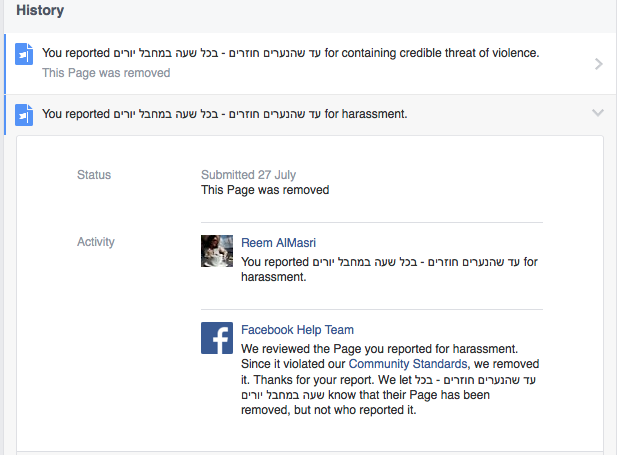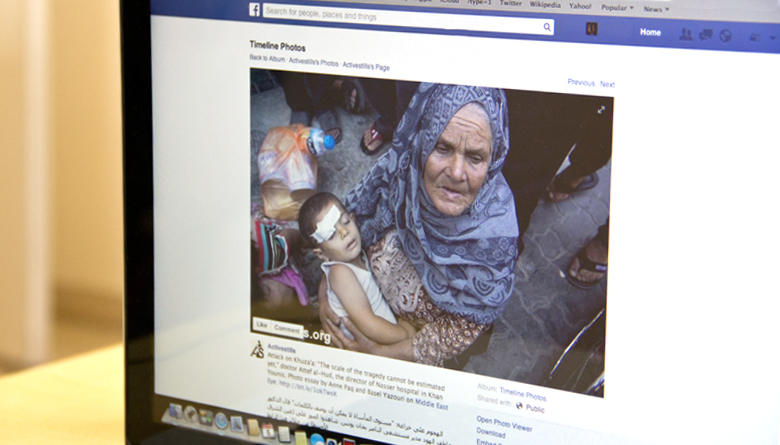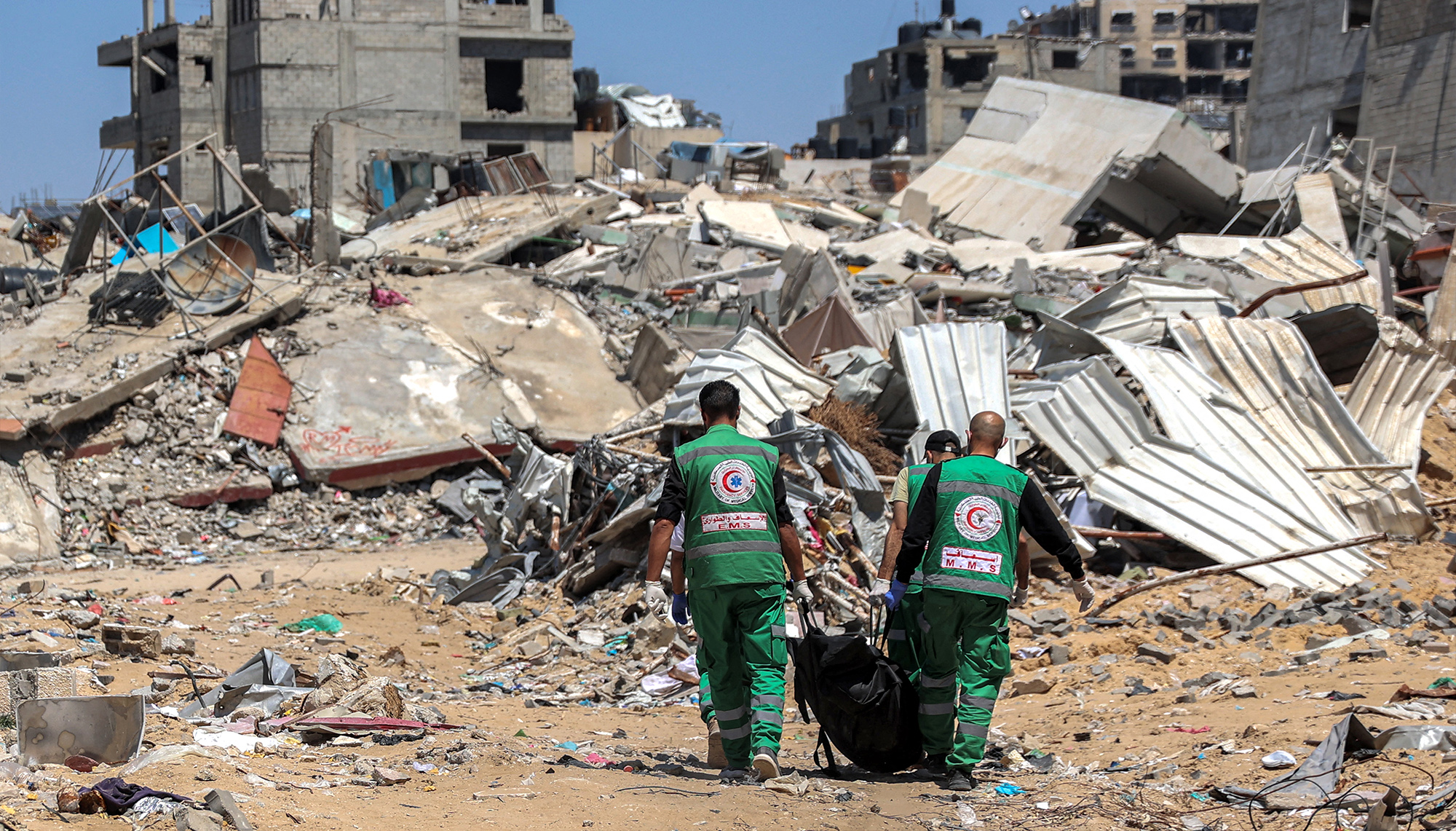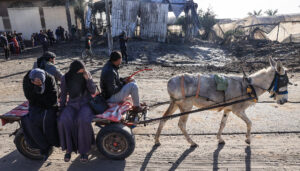By Reem Almasri Not only was the page of IDF soldier Oron Shaul removed from Facebook after the announcement of his captivity by Hamas, but also posts by users sharing this page were deleted.
Below is a screenshot from a journalist that says “I am pretty sure I have shared the page of the captured soldier Oron Shaul asking how we can break the news that he’s been taken hostage to his people who think he is dead. Now I tried to access his page and found that it’s gone, and the post I wrote about it disappeared as well. Facebook’s dirty policy in breaching privacy”.

Instead of TV, we are now glued to Facebook or Twitter for news, as they’re becoming a tool for massive collective documentation of the Israeli aggression on Gaza through videos, photos, and personal accounts. These social media platforms have played a major role in exposing Israeli propaganda and bias of western media.
It is working, sometimes. We saw how NBC news reversed its decision to pull out seasoned Egyptian-American journalist Ayman Mohyeldin from Gaza following social media uproar against it. Outrage broke on Social media after ABC “World News” anchor Diane Sawyer misrepresented Palestinian victims in the aftermath of an Israeli airstrike as Israelis hit by a Palestinian rocket, forcing the channel and anchor to apologize. These are examples of how social media platforms remained neutral to generic online movements that used its platforms to pressure change of biased coverage on the conflict. On the other hand, since the brutal Israeli aggression against Gaza started a month ago, stories have surfaced of Facebook using its algorithm to change content and support Israeli propaganda.
First, Facebook decided to shut down the accounts of Hamas officials Sami Abu Zihri (on July 8th), Izzat Rashq (on July 18th), and Musa Abu Marzouq (on July 24th). It’s been common knowledge that the US-based company adopts the US government’s “List of Terrorist Organizations” to identify organizations that are not allowed to maintain a presence on their site. We can save the argument over the biased definition of “terror” for another article, but removing these pages at the beginning of the Israeli aggression shows how Facebook actively follows US political foreign policy. The following screenshots are from the newly created pages of these officials announcing Facebook’s ban of their original pages.



Facebook claims to implement a set of Community Standards, yet it did not respond to the mass reporting of a page titled “Until the boys are back – Kill a Palestinian Every Hour”, which posts photos of Palestinians and openly calls for their kidnapping and killing. The following is a screenshot showing Facebook response to activists reporting the page.

Such posts are not enough reason for Facebook to remove the page, whereas not providing your real information with a government-issued ID is. The platform that once helped activists remain anonymous from their governments is now suspending accounts of several Palestinian activists for not using their real names or birth dates. On July 11th, a Palestinian photographer reporting from Gaza received this message:
“Facebook is a community where people use their real identities. We require everyone to provide their real first and last names and real birthday so you always know who you’re connecting with. Your account is temporarily suspended because your timeline doesn’t list your real name. To reopen this account, please reply to this email stating your real name (as it would be listed on a government-issued ID like a passport or drivers license). Once we know your real name, we can update your timeline and reactivate your account.”
On July 14th, the the British Muslim Public Affairs Committee (with 90,000 followers) said that its page was shut down after exposing Israel.
In addition to policing content by removing pages, Facebook commits a serious invasion of privacy by deleting posts from personal accounts and even private conversations, and without any notification. A post of the Youtube video titled Former Israeli Air Force Captain telling the truth about Gaza 2009 was deemed “too graphic” by Facebook and removed, according to a follow up with users complaining in the following conversation:
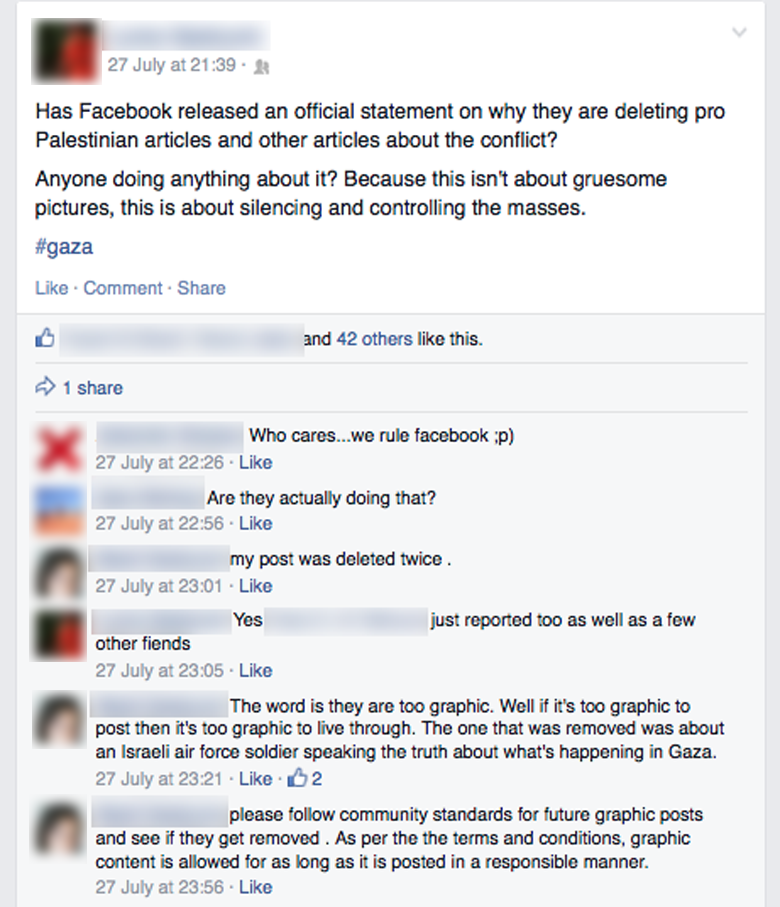
Facebook goes as far as deleting private messages, saying they are “abusive or spam”. On July 23rd, a private message that included a call to report an anti-Palestinian page could not be retrieved and was replaced with the following message:

The content of the message included a request to report a page that curated photos of Palestinians living in Israel who voiced anti-Israeli sentiments, and called on their employers to fire them. The message was restored by Facebook two days later, below is a screenshot of its content:

It’s not surprising that Facebook follows a certain political agenda. This was clear from the beginning when it went after pages of Hezbollah and Hamas, organizations defined as terrorist by US standards. At the start of the Syrian revolution Facebook removed several pages of Syrian activists, including pages that curate news of attacks and connect activists from the diaspora like the Syrian Network for Human Rights and pages of local coordination committees.
It is the extent and reach of Facebook’s bias that’s surprising. The company can legally breach our right to privacy and free speech by removing posts and private messages. This is explicit and we can spot it. The danger lies in Facebook’s subtle techniques to control news feeds through its algorithms. What would prevent Facebook, for example, from hiding posts that are pro-Palestinian, pro-resistance, and pro-Hamas from our news feed without our knowledge? We can’t know when Facebook changes its algorithm because that’s something the company is never transparent about.This not a far-fetched example. Both the social experiment that Facebook conducted on its users without their knowledge in June 2014 and its involvement in the 2010 elections campaign make these scenarios highly possible. While the ethicality of these experiments was highly challenged, they were legal and within the company’s terms of service that allow it to manipulate content.
While Facebook is playing a role in documenting violations and challenging mainstream media, its own bias and confusion in applying its Community Policy, highlights the need for more decentralized platforms for documentation so that no one entity has so much power over content.
Update After Facebook’s initial refusal to remove the page “Until the boys are back – Kill a Palestinian Every Hour”, it revisited its decision and subsequently removed it on August 7, 2014.
